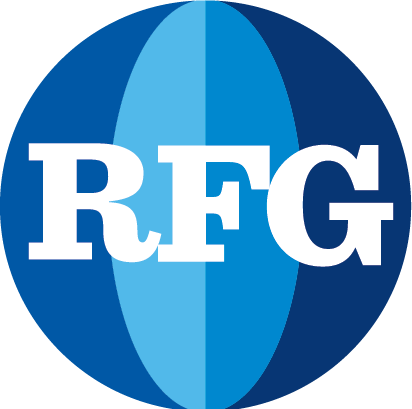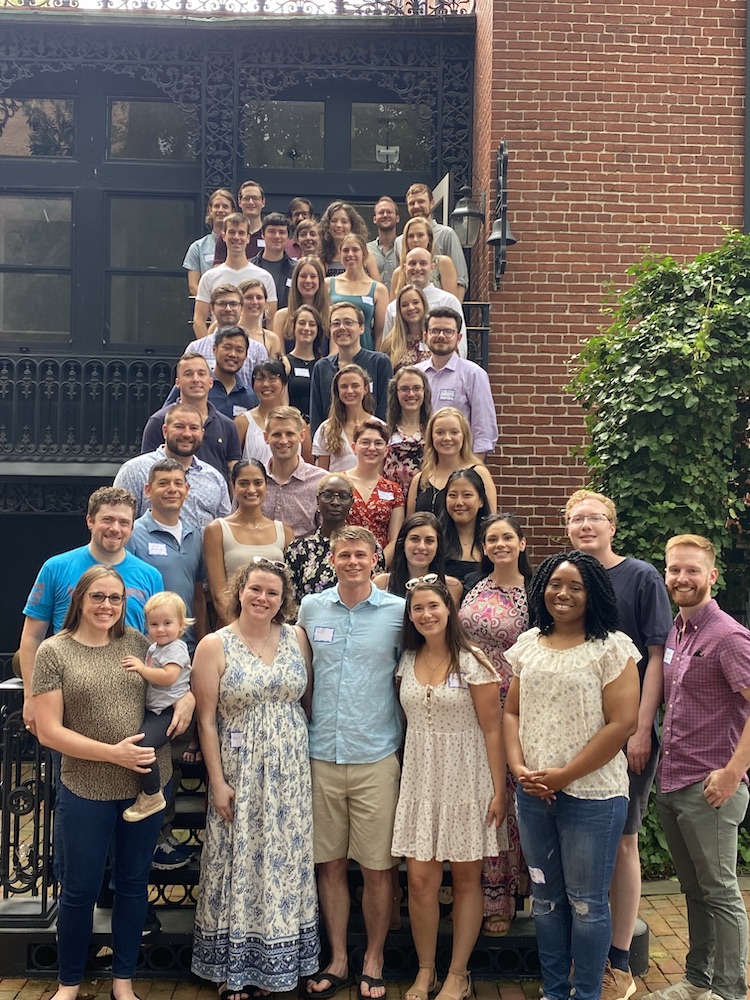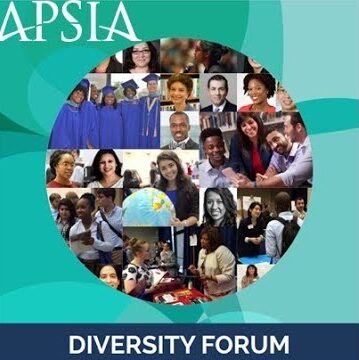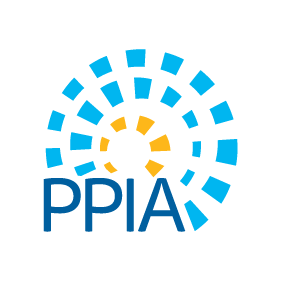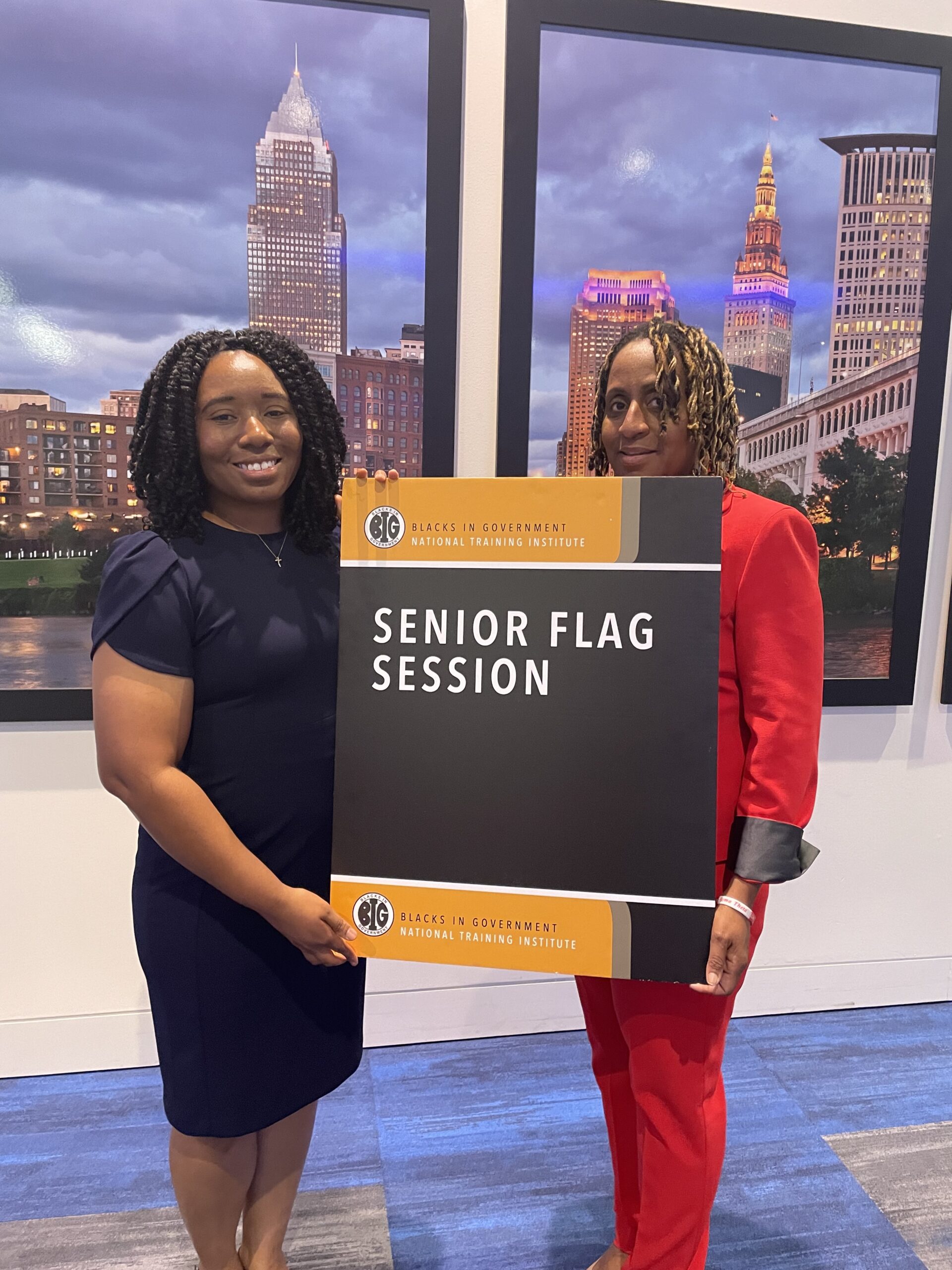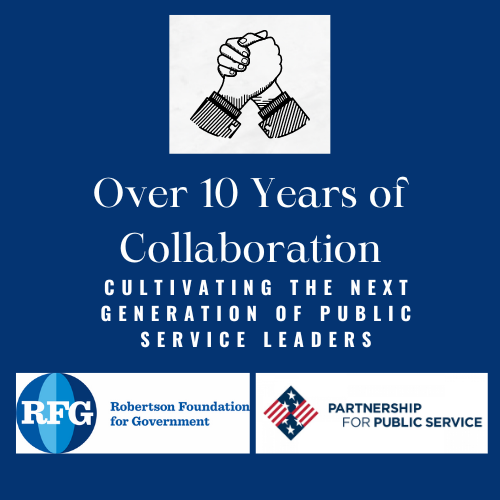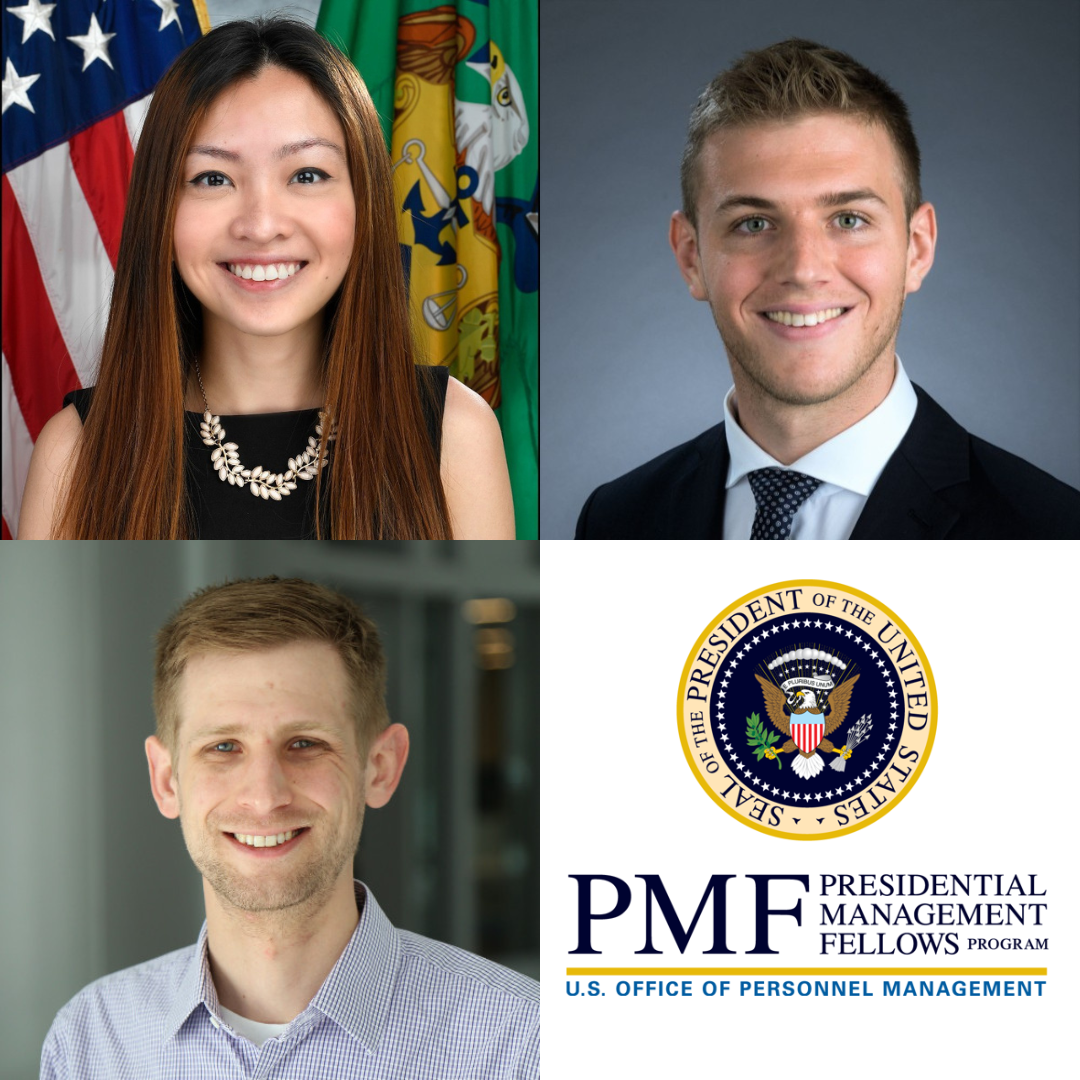
The Presidential Management Fellows program — one of the prominent pathways into Federal Government service for graduate students — is an opportunity frequently sought after by RFG Fellows and Alumni. Specifically, the PMF Program is a leadership development initiative created by the U.S. Federal Government designed to recruit, train, and cultivate a cadre of future government leaders from a pool of advanced degree holders. The program offers recipients a two-year appointment at a Federal Government agency with a full-time salary and benefits at the GS-9, 11, or 12 level and a promotion potential up to a GS-13. Recipients also gain access to 160 hours of leadership development training, mentorship from a senior government official, and at least one rotational opportunity either within or outside their home agency. Along with these benefits, those selected for the PMF program join a robust network of current PMFs and PMF Alumni.
In an effort to support RFG Fellows along with the eligible recent graduates from the Classes of 2022 and 2021 in their preparations for the PMF’s 2022 application season, the Foundation held a virtual information session on the PMF program in August. The virtual session provided an overview on how to become a PMF and presented attendees with the opportunity to hear from current RFG PMFs, including:
- Vy Nguyen (UCSD ‘20): International Economist at the Treasury Department’s Office of Trade Policy
- Brett Northfield (Fletcher ‘20): Budget Analyst at the USAID Office of Budget & Resource Management
- Michael Schwab-Holler (UCSD ‘19): China Desk Officer at the U.S. Department of Commerce
These RFG Alumni shared insights on tackling the PMF online assessment, which is the first stage in the application process. With over 170 questions included in the online assessment, Vy (UCSD ‘20) discussed strategies for handling the extensive battery of questions.
“The online assessment can be very arbitrary with the same types of questions repeated in different ways,” Vy commented. “So, my best advice is to imagine yourself as a public servant and answer the questions in a way consistent with what you would do on the job.” She added, “That means you won’t necessarily answer a question the same way every time.”
Brett (Fletcher ‘20) offered another strategy, encouraging attendees to take the 2–3-hour assessment piece by piece. “The online portion of the exam allows you to take each section individually,” he explained. “I recommend taking the exam over the course of two days and plan for breaks in between each section. It was helpful for me to take a break and clear my head while I was taking the exam.”
A new element of the PMF application process is a structured interview that PMF semi-finalists who pass the online assessment will have to undergo to become PMF finalists. While the RFG Alumni speakers did not undergo this structured interview when applying for the program, they spoke on successful interview strategies they have employed in the past. Michael (UCSD ‘19) encouraged attendees to approach these interviews with the right mindset. He stated that “it is always good to be confident and let your personality come through. If it helps, you can always think about how someone who embodies the core competencies of the PMF program might respond to these types of questions and model yourself after that ideal.”
Vy also encouraged attendees to consider their headspace when interviewing. “Relax and don’t compare yourself to others,” she underscored.
Like Michael, Vy highlighted the importance of considering the eight core competencies deemed critical to success in a PMF role, stating “memorize the list of PMF competencies by heart! In your interview, answer the question concisely and articulately, and try connecting your experience with at least two or three of those competencies.”
While core competencies have been an essential part of the PMF application process for years, the list of critical competencies has been updated this application cycle to include: Attention to Detail, Flexibility, Integrity/Honesty, Interpersonal Skills, Oral Communication, Reasoning, Self-Management, and Supporting Diversity.
When considering potential interview questions, Brett made an important observation. “These interviews will likely focus on your desire to work in public service rather than your compatibility for any particular job,” he noted. “Prepare a strong answer to the question: Why are you interested in public service? Think about how your previous experiences make you a good match for working in public service and prepare accordingly,” Brett concluded.
The speakers ended the session on a positive note, sharing the aspects that have been the best parts of their PMF experience thus far. Brett highlighted the benefits of the 4–6-month rotational assignment that PMFs get to pursue as part of their professional development in the program.
He explained, “The rotation component of the program is an incredible opportunity to work in different areas of government. My two rotations were in USAID’s Bureau for Policy, Planning, and Learning and with Senator Chris Murphy’s Foreign Policy team. Both were the highlights of my PMF Fellowship.” Brett enthusiastically added, “The rotations alone are reason enough to apply for the PMF.”
Michael shared how the cohort aspect of the program, along with access to the PMF alumni network, has been a positive part of his experience as a PMF.
“There is a huge sense of community amongst PMF Fellows and Alumni,” he explained. “And it is a professional network that you can fall back on at any stage of your career.” Like Brett, Michael spoke on the professional development aspects of the PMF program, stating “the opportunities you get as a Fellow, especially the training and development assignment, are rare in the government and provide you with a great opportunity to experience a lot very early in your career.” Michael added, “I can’t speak more highly of the program.”
Vy spoke on the connections she has made as a PMF, sharing “My favorite part [of the program] is the chance to meet incredibly smart, talented, and most importantly passionate people in the government.” She continued, stating “you never know who you’ll meet that will be instrumental to your career, but I’m certain that without the PMF I wouldn’t be where I am.”
RFG is extremely proud of its more than 30 PMF Alumni and the RFG Fellows and recent graduates who just completed the PMF online assessment in early October 2022. Thank you for your continued dedication to a career in the public sector and for your service as leaders in the U.S. government.
